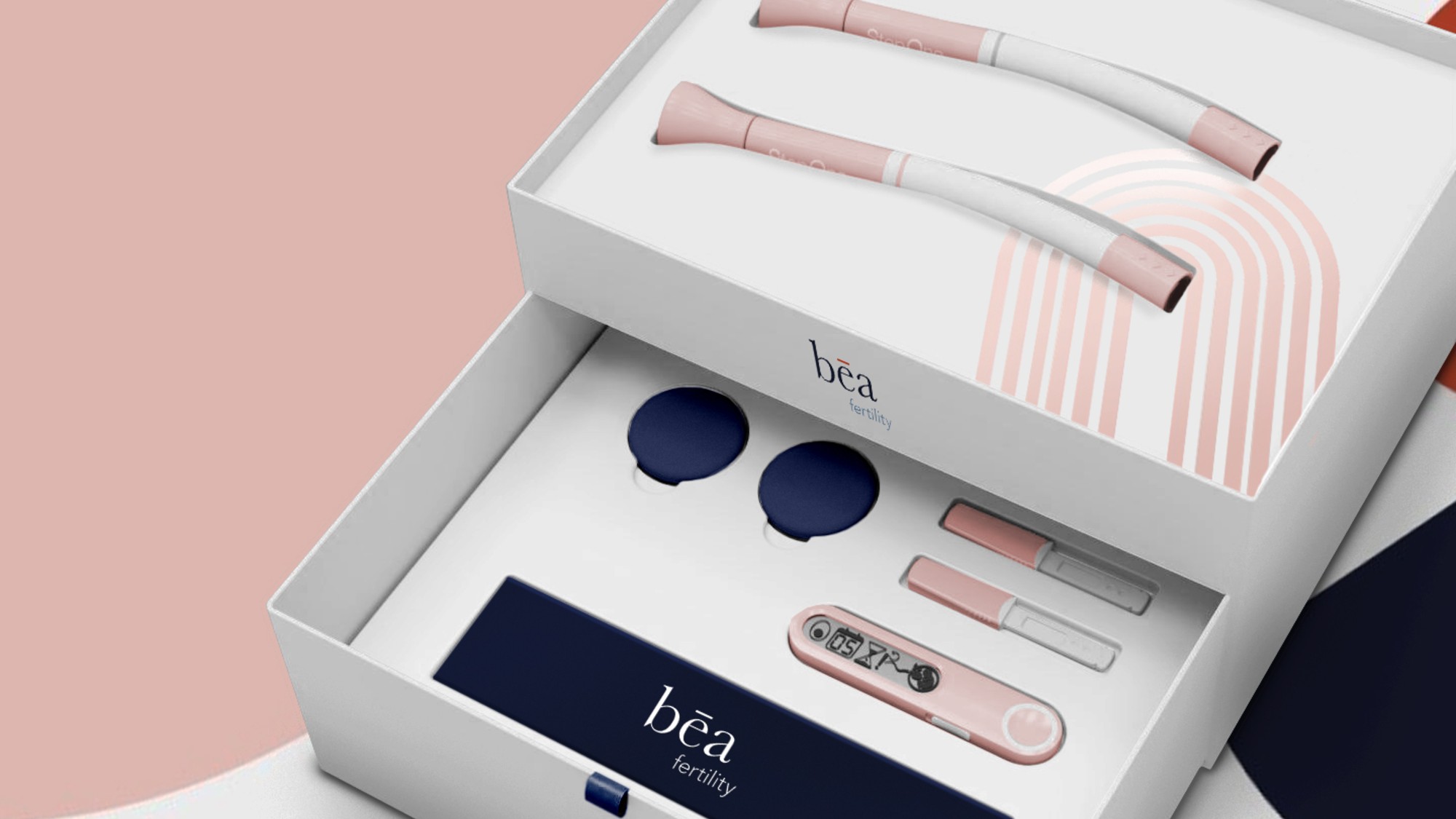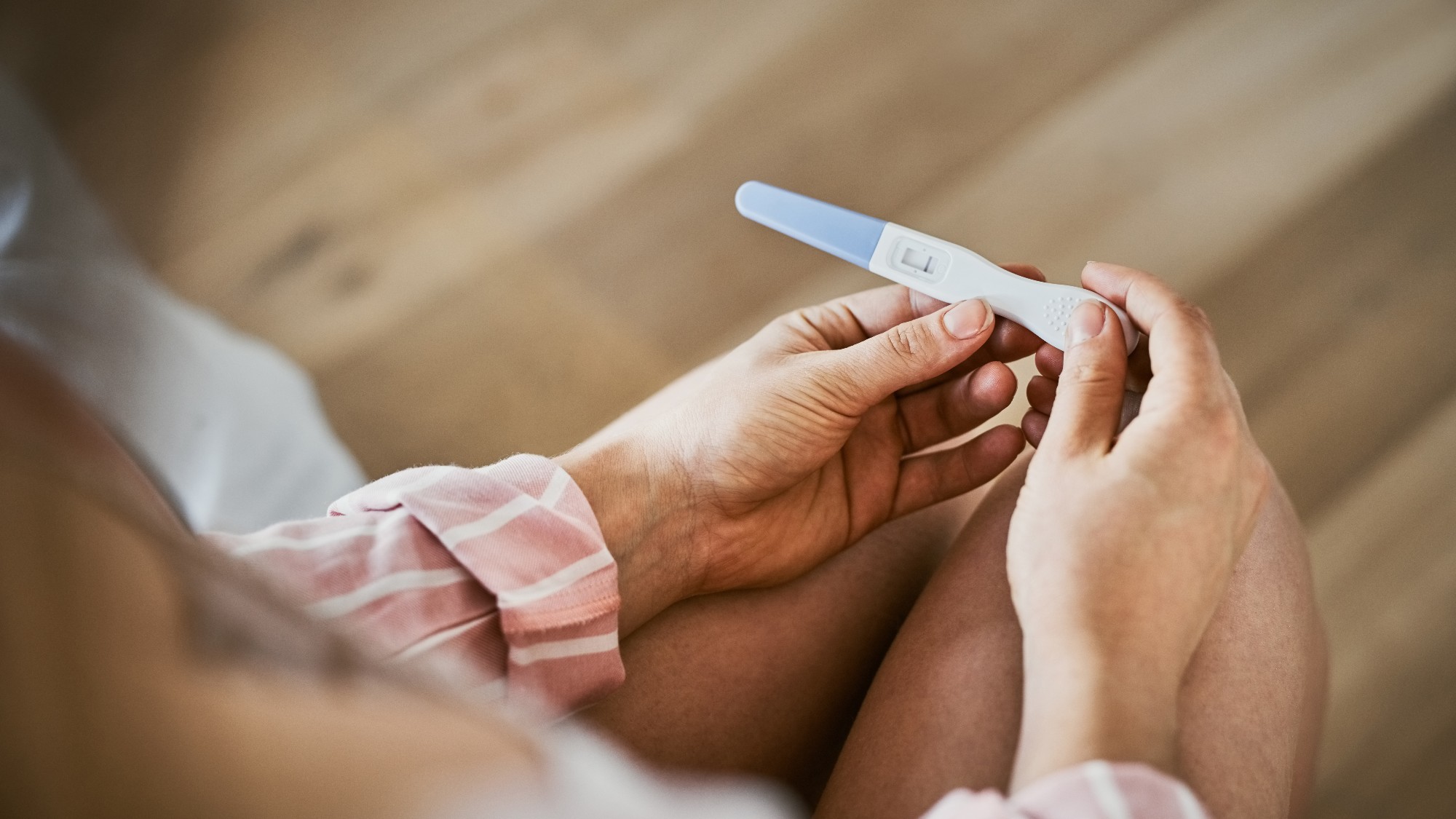
Celebrity news, beauty, fashion advice, and fascinating features, delivered straight to your inbox!
You are now subscribed
Your newsletter sign-up was successful
We asked the experts.
Yes, you read that right – the first at-home, clinical-standard fertility kit is coming to the UK.
While this year hasn't been easy for anyone, it's been especially tough for those struggling to conceive. With infertility thought to affect 1 in 7 heterosexual couples in the UK, for many, the pandemic has prompted heartbreaking delays to planned treatments, and ushered in even more hurdles than usual.
It's no secret that fertility treatments are notoriously expensive and time consuming. Currently, the most common next step for those unable to conceive naturally is either Intrauterine Insemination (IUI) or In Vitro Fertilisation (IVF) treatments at a fertility clinic.
While some are eligible for initial IVF treatments, there is certain criteria to be met, and those who don't qualify or those who need to continue their conception journey beyond that point must foot the bill themselves.
So, what is the Bea at-home Fertility kit?
Which is where the Béa at-home fertility kit comes in. Founded by embryologist David O’Rourke and fem tech specialist Tess Cosad, the kit costs £300 a round – as opposed to upwards of £5,000 for one cycle of IVF and around £1,500 for one IUI treatment – and is delivered to your front door.
"Having seen friends and family go through the heartbreak of trying to conceive, I was acutely aware of the inadequacies in the system that made fertility treatment inaccessible or unaffordable for many," shares Cosad. "Factors as arbitrary as your age, sexual orientation and postcode can prevent you from accessing NHS fertility provision, and the lack of regulation at private clinics means a round of IVF can cost you anything from £3,000 to £15,000."
The kit promises to be a clinical-standard, non-invasive first step towards pregnancy, with the brand sharing that using it can improve your chances of conception by 40% over three months, and by as much as 60% over six months (the global IVF success rate is 25%). But, question: does it work?
Celebrity news, beauty, fashion advice, and fascinating features, delivered straight to your inbox!
We've asked a midwife, independent of the team and not associated with the product, to share what they actually think of the at-home fertility kit. Keep reading to find out.
How does the at-home fertility kit work?
Essentially, it's an at-home version of an old clinical treatment called Intracervical Insemination (ICI).
"The ICI method involves placing a small cup of semen close to (or on) the cervix at the time of ovulation, where it’s left in-situ for four to twelve hours," explains Cosad. During that time, women can go about their days as normal. There are no invasive hormone treatments or injectables involved.
Then, two weeks after your treatment, you test for pregnancy, she shares. If you don't have success over six months, the co-founder reassures that someone at the company would talk to you to discuss next steps.

What are the pros of using the Béa at-home fertility treatment?
It's the first of it's kind
"Today, you won’t find a complete treatment kit that offers everything you need for a complete cycle, in one box," explains Cosad.
She points out that there are some companies who sell engineered menstrual cups to serve a similar purpose, but shares that finding the cervix without a device to help is tricky. "When we launch, we’ll be the first of our kind," she stresses.
It's more cost effective
As above, if you're struggling to conceive, the options available to you are IUI (intrauterine insemination) or IVF (in-vitro fertilisation).
"In some Clinical Commissioning Groups, NHS provision is only available to women in a stable relationship who are under a certain age and BMI - so for those who don't fit the stringent criteria, you'll have to fork out significant sums of money to undergo treatment privately," she explains.
The average UK couple spends £12k on fertility treatment, which is too much for most couples. "The Béa Kit, at £300 per complete kit, is much cheaper per round than both private IUI and IVF," she continues.
It's inclusive
The company's main focus for the launch is inclusivity: as they stress, they've built the device for everyone.
"Those less able, women unable to have intercourse due to sexual trauma or other pelvic conditions, LGBTQ+ families, single women using known donor sperm… What we’re most proud of is the inclusivity the Béa Kit is designed for, and we stand strong in our mission to make sure we support every single family, however they get their start," explains Cosad.
It's non-hormonal and non-invasive
Last but by no means least, the kit is both non-hormonal and non-invasive. "You don't have to go to doctors appointments or fertility clinics, or undergo rigorous tests," she explains.
"Our kit is safe, simple and comfortable to use at home, meaning the experience of undergoing treatment with Béa is very different to going down the clinical route."
What are the cons of using the Béa at-home fertility treatment?
It's new
It's important to note that, as it's a first-of-its-kind product, there are no reviews as of yet; meaning you can't compare notes on someone else's experience.
It's different
As Cosad points out, it's a first-of-its-kind and has never been launched before - which can either be a pro or a con, depending on how you look at it.
Although, when I ask Cosad what the risks of using Béa are, she maintains there are none. "It's completely safe. ICI is considered a non-invasive treatment – it will feel a little bit like having a tampon or menstrual cup inserted. The fact that it is non-hormonal mitigates most of the risks that you might expect with other types of treatment."
So, does it work? A midwife's independent verdict
According to Chloë Mulholland, midwife from Do It Like A Mother, there are pros and cons to the kit.
“Going through struggles with fertility can be one of the most stressful times in a person’s life," she explains. "Access to fertility treatment on the NHS can be a postcode lottery, with some areas offering far easier access to help than others, and the option of paying privately can be out of reach for many, leaving some people with little help at all."
"The Béa at-home fertility kit looks like a great option as it adds a little more choice to the world of fertility treatment," she shares. "Not to mention the fact that it can be used at home, which means your privacy is maintained and you get to avoid that uncomfortable ‘legs in stirrups’ moment at a clinic."
Any cons? "The downside is that it doesn’t address any issues with the semen itself, so if there are any issues on the male side, then it’s unlikely Béa would be able to help," she warns. "After all, even though the sperm are being held close to the cervix, they still have a long way to swim before they fertilise the egg."
"It may also be a bit tricky to get it exactly in the right place and might require you to get to know your anatomy slightly better than you may have done before," she continues.
Bottom line? "Other than that, it seems like a great product and one that is certainly welcomed into the fertility arena.”

Ally is Marie Claire UK's Senior Health and Sustainability Editor, a well-regarded wellness expert, ten-time marathoner, and Boston Qualifying runner.
Utilising her impressive skillset and exceptional quality of writing, she pens investigative, review and first-person pieces that consistently demonstrate flair and originality.
As well as writing, Ally manages a team of freelancers, oversees all commissioning and strategy for her pillars, and spearheads the brand's annual Women in Sport covers, interviewing and shooting the likes of Mary Earps, Millie Bright, and Ilona Maher. Shortlisted for three BSMEs and winning one in 2022, Ally lives and breathes her verticals: her eye for a story and connections within the wellness sphere are unrivalled. Follow Ally on Instagram for more.
